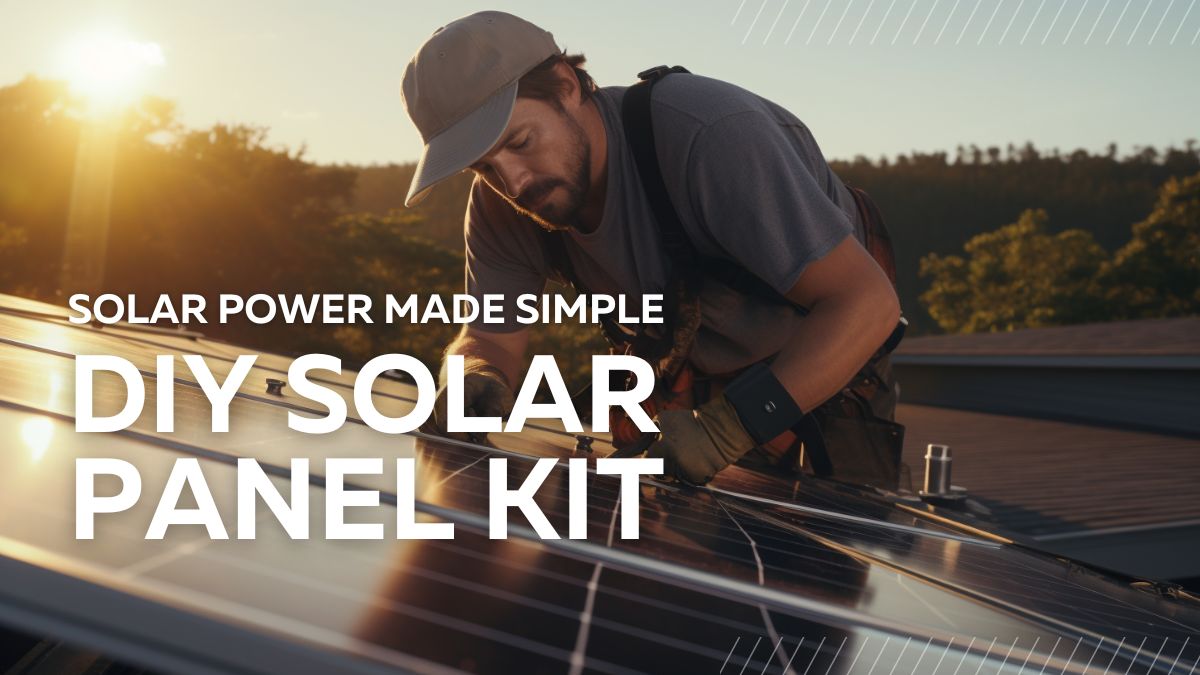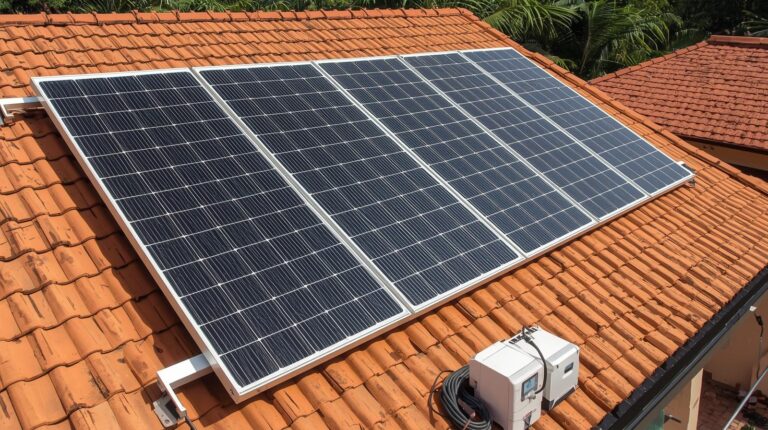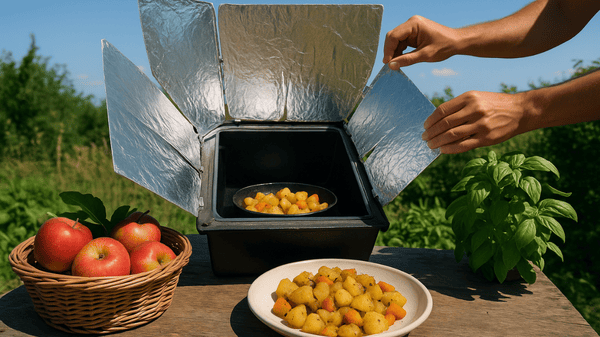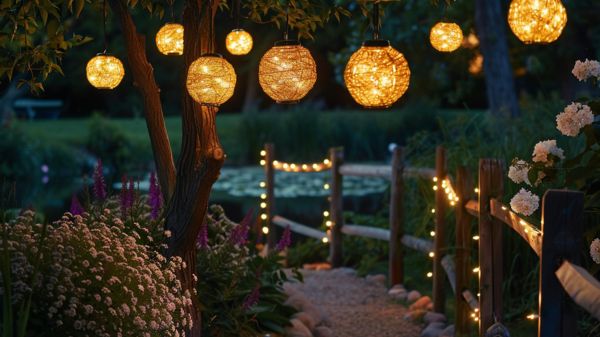Attention all DIY enthusiasts! Are you ready to harness the power of the sun? A DIY solar panel kit could be your best and affordable solution! This incredible kit have revolutionized the way we can generate clean, renewable energy right from the comfort of our own homes.
With easy-to-follow instructions and all the necessary components included, you can become a solar power expert in no time. Join us as we explore the world of DIY solar panel kits and discover the endless possibilities they offer.
Takeaways
- DIY solar panel kits harness the power of the sun for clean, renewable energy.
- These kits come with easy-to-follow instructions for installation and include all necessary components.
- DIY solar panel kit is scalable, allowing for expansion as energy needs grow.
- They are ideal for off-grid use or powering small-scale applications.
DIY Solar Panels: A Closer Look
Let’s take a closer look at the DIY solar panels.
DIY solar panel kit is an excellent option for those who want to harness the power of the sun and generate their own clean energy. This kit provide all the necessary components for assembling a functional solar panel system.
With a DIY solar panel kit, you can easily install and connect the solar panels to your desired location. These kits are designed to be scalable, allowing you to add more panels as your energy needs grow.
It’s important to note that DIY solar panels are ideal for small-scale applications and not intended to power an entire home. They’re best suited for off-grid use, such as providing power to a detached workshop or an RV.
However, some DIY solar panels may not be connected to the power grid, and their performance may be affected by overcast conditions. So, before choosing a DIY solar panel kit, consider your energy requirements and the local climate conditions.
Components of Solar Panel Kits
When it comes to DIY solar panel kits, there are several key components that are essential for a successful installation.
These components include:
- The solar panels themselves
- A battery bank to store the energy generated
- A power inverter and charge controller to convert the energy into usable electricity
- The necessary cables and mounting hardware to connect everything together.
Each of these components plays a crucial role in harnessing and utilizing solar power effectively.
1. Solar Panels
The solar panels are the primary components of our DIY solar panel kits. These panels are responsible for collecting sunlight and converting it into electricity. They consist of multiple solar cells made of semiconductor materials, such as silicon, that have the ability to convert sunlight into electric current through the photovoltaic effect.
The solar cells are interconnected and encapsulated in a protective layer to form a solar panel. Our DIY solar panel kits include high-quality solar panels that are designed to be durable and efficient in converting sunlight into usable electricity.
With our kits, you can easily install the solar panels yourself using the provided instructions and tools. By opting for a DIY solar panel installation, you can save money and have the satisfaction of contributing to a more sustainable future.
Related Post: Best Solar Panels for Limited Space, Warm Climates, and Warranty.
2. Battery Bank
Installing a battery bank is essential for storing excess energy generated by the solar panels and ensuring a reliable power supply in a DIY solar panel kit. The battery bank acts as a reservoir, allowing you to store the electricity produced during the day for use at night or during cloudy days.
Here are three key reasons why a battery bank is a crucial component of an off-grid solar power system:
- Energy storage: The battery bank stores the excess electricity produced by the solar panels, ensuring that you have a continuous power supply even when the sun isn’t shining.
- Backup power: In case of power outages or emergencies, the battery bank provides a backup power source, allowing you to continue using essential appliances and devices.
- Increased self-sufficiency: With a battery bank, you can reduce your reliance on the grid and become more self-sufficient in generating and storing your own electricity.
Related Post: Best Solar Panel Battery Bank for Home: The Ultimate Guide.
3. Power Inverter and Charge Controller
We use a power inverter and charge controller as essential components of our DIY solar panel kits.
The power inverter is responsible for converting the DC (direct current) electricity generated by the solar panels into AC (alternating current) electricity, which is the type of electricity commonly used in homes and businesses. This allows you to power your appliances and devices directly from the solar panels.
The charge controller, on the other hand, regulates the flow of electricity from the solar panels to the battery bank. It ensures that the batteries are charged efficiently and prevents overcharging or discharging, which can damage the batteries. Together, the power inverter and charge controller enable you to create an off-grid solar system with your DIY solar power kit.
| Component | Function |
|---|---|
| Power Inverter | Converts DC electricity from solar panels into AC electricity |
| Charge Controller | Regulates the flow of electricity from solar panels to battery bank, prevents overcharging |
4. Cables and Mounting Hardware
For our DIY solar panel kits, we rely on cables and mounting hardware to ensure proper connectivity and secure installation. These components are essential for the success of any DIY solar system project and play a crucial role in the overall performance and longevity of the system.
Here are three key reasons why cables and mounting hardware are vital:
- Connectivity: Cables are responsible for transferring the energy generated by the solar panels to the power inverter and charge controller. They need to be of the right length, thickness, and quality to minimize power loss and maximize efficiency.
- Safety: Properly installed mounting hardware ensures that the solar panels are securely attached to the roof or ground. This prevents any potential damage or accidents, providing a safe environment for both the solar panels and individuals.
- Durability: High-quality cables and mounting hardware are designed to withstand the harsh outdoor elements, such as extreme temperatures, UV radiation, and heavy winds. This ensures the longevity and reliability of the entire solar panel system.
Types of Solar Panel Kits
Now let’s talk about the different types of solar panel kits available. There are three main options to consider: grid-tied kits, off-grid kits, and RV kits.
- Grid-tied kits are designed to be connected to your existing electrical grid, allowing you to offset your energy usage and potentially sell excess power back to the grid.
- Off-grid kits are perfect for those who want to completely disconnect from the grid and rely solely on solar power.
- RV kits are specifically designed to provide power for recreational vehicles, allowing you to enjoy the comforts of home while on the road.
DIY Solar Panel Kit for Grid-Tied System
Typically, grid-tied solar panel kits are often connected to the utility power grid to maximize energy usage and minimize dependency on traditional power sources. This type of DIY solar panel kit allows homeowners to generate their own electricity and feed any excess power back into the grid.
Here are three key benefits of grid-tied kits:
- Net metering: Grid-tied kits are equipped with a bi-directional meter that measures the amount of electricity consumed from the grid and the excess energy produced by the solar panels. This allows homeowners to receive credits for the excess energy, effectively reducing their electricity bills.
- Potential energy bill cancellation: With a properly sized grid-tied kit, homeowners have the potential to generate enough electricity to cover their entire energy consumption, leading to a complete cancellation of their energy bills.
- Easy installation and maintenance: Grid-tied kits are relatively simple to install and require minimal maintenance. They can be easily connected to the existing electrical system of a house, making it a convenient option for DIY enthusiasts.
DIY Solar Panel Kit for Off-Grid System
We can categorize off-grid solar panel kits into three main types based on their power capacity and battery storage capabilities. These kits are designed for those who want to power their homes or cabins independently of the power grid. Let’s take a look at the different types of off-grid solar panel kits:
| Kit Type | Power Capacity | Battery Storage |
|---|---|---|
| Basic Kit | Suitable for small power needs | Limited battery storage |
| Standard Kit | Adequate for average power needs | Moderate battery storage |
| Premium Kit | High power capacity | Large battery storage |
Each kit comes with solar panels, a charge controller, and an inverter. The main difference lies in the power capacity and battery storage. The basic kit is ideal for simple off-grid setups, while the premium kit is suitable for larger power demands and longer periods without sunlight. With these DIY off-grid solar system kits, you can enjoy the benefits of renewable energy while being self-sufficient.
DIY Solar Panel Kit for RVs
When choosing RV kits, it’s important to consider the specific power needs and battery storage requirements of your recreational vehicle. DIY solar panel kits for RVs are specifically designed to provide energy when hookups aren’t available, allowing you to enjoy off-grid adventures without worrying about power supply.
Here are the three main types of RV kits to consider:
- Starter Kits: These entry-level kits typically include a small solar panel, a charge controller, and wiring. They’re suitable for RV owners who have basic power needs and want to dip their toes into solar energy.
- Mid-Range Kits: These kits offer a larger solar panel capacity and may include additional components such as an inverter or battery bank. They’re ideal for RV owners who require more power for appliances and electronics.
- Premium Kits: These high-end kits come with larger solar panels, advanced charge controllers, and expanded battery storage. They’re designed for RV owners who have high power demands and need a reliable and robust solar system.
No matter which RV kit you choose, DIY solar panel kits provide a cost-effective and eco-friendly solution to power your adventures on the road.
Related Post: Best Solar Panels for Mobile Homes: Your Green Power Solutions.
Cost of Solar Panel Kits
Our budget for solar panel kits varies depending on the wattage capacity and overall system size.
When it comes to the cost of solar panel kits, it’s important to consider the size of your DIY solar power system. Smaller kits with lower wattage capacities, such as 100 watts, can range from $100 to $300.
On the other hand, larger kits with higher wattage capacities, like 1000 watts, can cost anywhere from $1000 to $3000. These costs include the panels, inverters, charge controllers, and mounting hardware.
Additionally, it’s worth mentioning that the cost of DIY solar panel installation can be significantly lower compared to professional installations. By installing solar panels DIY, you can save money while enjoying the benefits of renewable energy.
Related Post: Best 100 Watt Solar Panel Kits: Reliable Energy Solution.
Factors to Consider Before Installing Solar Kits
Before installing solar kits, there are several factors to consider. First, research companies that sell DIY solar panel kits to find the most reputable and reliable options. Next, consider the type of solar panel that best suits your needs, whether it’s monocrystalline, polycrystalline, or thin-film.
Additionally, take into account your roof type and its suitability for solar panel installation. It’s also important to assess your electrical energy consumption to determine the size and number of panels needed. Lastly, prioritize safety precautions to ensure a successful and secure installation process.
1. Companies That Sell DIY Solar Panel Kits
We highly recommend researching and comparing different companies that offer DIY solar panel kits before making a decision.
Here are some reputable companies where you can buy DIY solar panel kits for your home:
- Renogy: Renogy offers a wide range of DIY solar panel kits that are suitable for both beginners and experienced solar enthusiasts. They provide high-quality solar panels, charge controllers, and mounting equipment, along with detailed installation instructions.
- Grape Solar: Grape Solar is known for their affordable and easy-to-install DIY solar kits. They offer various kit sizes to meet different energy needs and provide excellent customer support.
- Goal Zero: Goal Zero offers portable and lightweight DIY solar panel kits, perfect for outdoor activities or emergency situations. Their kits come with built-in inverters and battery storage options.
Before purchasing a DIY solar panel kit, consider factors such as the size of your system, your energy needs, and your budget. It’s also important to check customer reviews and warranties to ensure you’re getting the best value for your investment.
Renogy 100 Watt 12 Volt Portable Solar Panel for Power Station

2. Solar Panel Types
When considering solar panel types for your DIY solar kit, it’s important to evaluate factors such as efficiency, cost, and durability. Different types of solar panels have unique characteristics that can impact their performance and suitability for your specific needs. Here is a comparison table to help you make an informed decision:
| Solar Panel Type | Efficiency | Cost | Durability |
|---|---|---|---|
| Monocrystalline | High | High | High |
| Polycrystalline | Moderate | Moderate | Moderate |
| Amorphous | Low | Low | Low |
Monocrystalline panels offer the highest efficiency and durability, making them a popular choice for those seeking the best DIY solar panel kit. However, they come at a higher cost.
Polycrystalline panels provide a balance between efficiency and cost, making them a good option for budget-conscious homeowners.
Amorphous panels are the least efficient, but they are more affordable and can be flexible in their installation. Consider these factors when selecting DIY solar panels for home use and ensure successful DIY solar panel installation.
3. Roof Type
When installing solar kits, we need to consider the type of roof. The roof type plays a crucial role in determining the feasibility and cost of DIY solar panel installation. Here are some factors to consider before proceeding:
- Roof slope: Steeper roofs may require additional mounting equipment and structural reinforcement to ensure the panels are securely fastened.
- Roof material: Different roofing materials, such as asphalt shingles, metal, or tile, may require specific installation techniques or equipment to ensure the panels can be securely attached without damaging the roof.
- Roof orientation and shading: Roofs with a south-facing orientation and minimal shading provide optimal conditions for solar panel efficiency. If your roof has significant shading or faces a different direction, additional measures may be required to maximize energy production.
Considering these factors will help determine the suitability of your roof for DIY solar panel installation and guide you in selecting the appropriate equipment and techniques for a successful project.
Related Post: The Best Roof Material for Solar Panels: The Ultimate Guide.
4. Electrical Energy Consumption
To accurately assess the suitability of installing DIY solar panel kits, we need to consider our electrical energy consumption and the factors that influence it. Determining our energy needs is crucial to ensure that the DIY solar panel system for our home is appropriately sized.
The first step is to evaluate our current electricity usage. This can be done by examining our utility bills over the course of a year to identify patterns and trends in energy consumption. Factors such as the number of occupants in the home, the size of the property, and the types of appliances and electronics used all contribute to our energy consumption.
Additionally, it’s important to consider any future changes in our energy needs, such as the addition of new appliances or an increase in the number of occupants.
5. Safety Precautions
We must prioritize safety and consider several factors before installing solar kits. When it comes to DIY solar panel installations, taking the necessary safety precautions is crucial to ensure a successful and accident-free project. Here are some factors to consider before diving into a DIY solar panel install:
- Familiarize yourself with electrical safety guidelines and regulations to prevent electrical hazards.
- Conduct a thorough assessment of your property to determine the best location for the solar panels, considering factors such as shading, structural integrity, and accessibility.
- Acquire the proper tools and equipment for the installation process, ensuring that they’re in good working condition.
By following these safety precautions, you can mitigate the risks associated with DIY off-grid solar power systems and create a safe and efficient DIY solar panel installation.
Pros and Cons of DIY Solar Panels
As we weigh the pros and cons of DIY solar panels, it’s important to consider the benefits and drawbacks of taking on the installation ourselves.
DIY solar panel kits offer several advantages. Firstly, they can save us money on installation costs as we don’t have to hire professionals. Secondly, we’ve control over the timeline, allowing us to work at our own pace. Lastly, DIY solar panels offer system design flexibility, enabling us to customize the installation according to our specific needs.
However, there are also some drawbacks to consider. One challenge is the requirement for specific skills, as solar panel installation can be complex. Additionally, choosing the DIY route may disqualify us from certain solar incentives, such as tax credits or rebates. Lastly, DIY solar panels may not come with warranty coverage, leaving us responsible for any repairs or replacements.
Professional vs. DIY Solar Panel Installation
While professional installation offers expertise and guarantees, DIY solar panel installation allows us to save money and customize the system to our needs.
Here are some factors to consider when deciding between professional and DIY solar panel installation:
Expertise and Guarantees:
- Professional installers have the necessary knowledge and experience to ensure proper installation and optimal performance.
- They also provide warranties that cover any potential issues or damages.
Cost Savings:
- DIY solar panel installation can be significantly cheaper compared to hiring professionals.
- By doing it ourselves, we eliminate labor costs and have more control over the budget.
Customization:
- With DIY solar projects, we’ve the freedom to design and customize the system according to our specific requirements.
- This allows us to create an off-grid solar power system or a DIY off-grid solar system that perfectly fits our needs.
Considering these factors, it’s important to weigh the benefits and drawbacks of each approach before making a decision on solar panel installation.
How To Find the Best Solar Panels
First, consider the efficiency rate and warranties of solar panels to find the best option for our needs. When looking for the best DIY solar panel kit, it’s important to prioritize panels with high efficiency rates. This means they can convert a larger percentage of sunlight into usable electricity. Additionally, check the warranties offered by different manufacturers. Longer warranties are typically a sign of higher quality panels that are built to last.
Next, think about your specific DIY solar energy project. Are you looking for DIY solar panels for your home or a smaller project like a shed or RV? Different projects have different requirements, so make sure to choose panels that are suitable for your specific needs.
Lastly, read reviews and do your research. Look for reputable manufacturers with good customer feedback. This will help ensure that you’re purchasing the best solar panels for your DIY project.
Related Post: The Best 10 DIY Solar Panel Kits for Off-Grid Power.
Frequently Asked Questions
Can I Install a DIY Solar Panel Kit on My Own, or Do I Need Professional Help?
Installing a DIY solar panel kit can be done on your own, but it’s important to consider whether you need professional help. Assess your knowledge and skills in electrical work and roofing, as these are crucial for a successful installation.
If you’re unsure or lack experience, it’s wise to seek professional assistance. They can ensure the installation is done correctly and safely, giving you peace of mind. Ultimately, the decision depends on your abilities and comfort level.
What Are the Maintenance Requirements for DIY Solar Panel Kits?
Maintenance requirements for DIY solar panel kits vary depending on factors such as location and weather conditions. Regular cleaning of the panels to remove dirt and debris is essential to ensure optimal performance.
Inspecting the system for any loose connections or damaged components is also necessary. Additionally, monitoring the system’s performance and keeping track of energy production can help identify any potential issues.
Are There Any Specific Permits or Regulations I Need to Consider Before Installing a DIY Solar Panel Kit?
Before installing a DIY solar panel kit, it’s crucial to consider specific permits and regulations. These requirements vary depending on your location and can include building permits, electrical permits, and compliance with local zoning codes.
It’s important to consult with your local authorities or a professional installer to ensure compliance with all necessary regulations. Failure to do so may result in penalties or even the removal of your solar panel system.
How Long Do DIY Solar Panels Last, and Do They Come With a Warranty?
How long do DIY solar panels last, and do they come with a warranty? Well, let me tell you, my friends, DIY solar panels are built to last. With proper maintenance and care, they can serve you for many years. And guess what? Most DIY solar panel kits come with a warranty, providing you with that extra peace of mind.
Can I Expand My DIY Solar Panel System in the Future if I Want to Increase Its Capacity?
Yes, we can expand our DIY solar panel system in the future if we want to increase its capacity. By starting with a basic kit and adding on additional panels and equipment as needed, we’ve the flexibility to grow our system over time.
This allows us to adapt to changing energy needs and take advantage of advancements in solar technology. Expanding our DIY solar panel system is an effective way to increase our capacity and continue to harness clean, renewable energy.
Our Conclusion
A DIY solar panel kit offers an affordable and accessible option for those looking to harness the power of the sun. With a variety of components and types available, the cost of this kit can vary.
Before installing, it’s important to consider factors such as location and energy needs. While DIY panels have their advantages, professional installation ensures optimal performance and efficiency. To find the best solar panels for your needs, thorough research and consultation with experts are essential.




